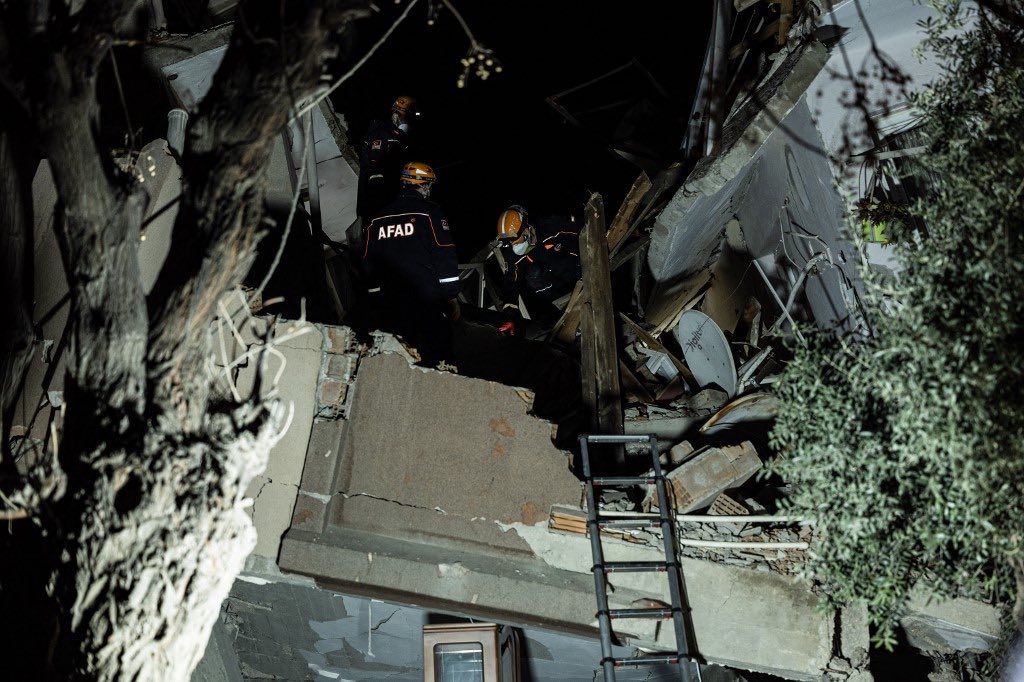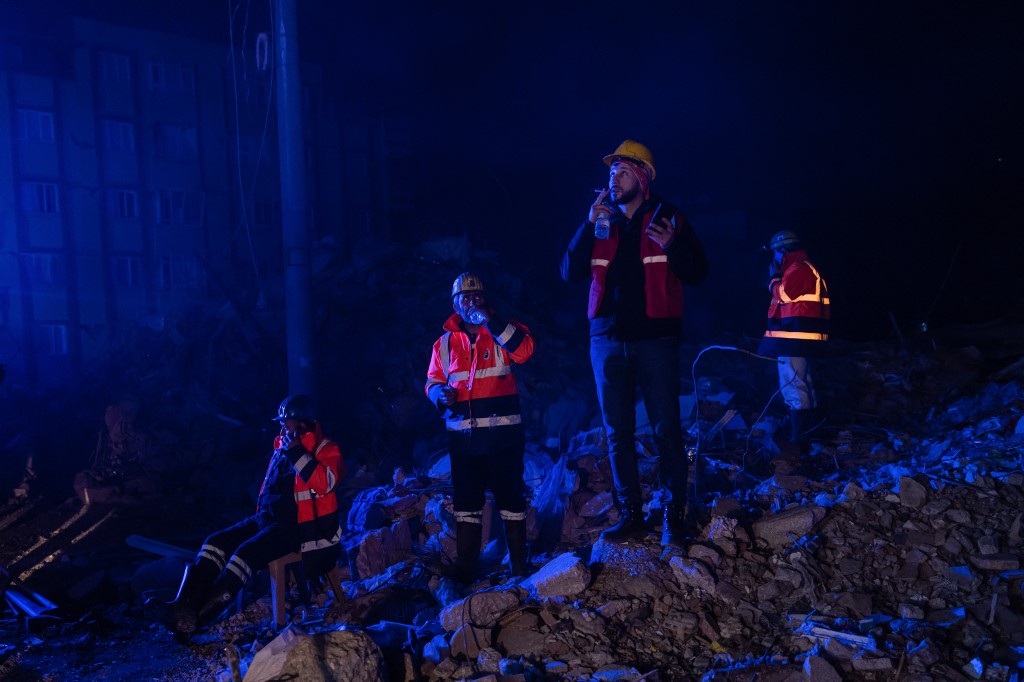New quake hits Turkey and Syria, killing three
A 6.4-magnitude earthquake on Monday, Feb. 20 rocked Turkey's southern province of Hatay and northern Syria, killing three people and sparking fresh panic after a Feb. 6 tremor that left nearly 45,000 dead in both countries.
Turkish Interior Minister Suleyman Soylu said three people were killed and 213 were taken to hospital, while in Syria White Helmets said more than 130 people were injured and that some already damaged buildings had collapsed.
Monday's quake hit the Turkish town of Defne and was strongly felt by AFP teams in Antakya city and Adana province, 200 kilometers (300 miles) to the north.
AFP teams also felt the tremor in Lebanon.
Turkey's disaster management agency said on Twitter another 5.8-magnitude quake followed three minutes later and its epicenter was Samandag district in Hatay.
The agency recorded two more tremors of 5.2-magnitude around 20 minutes after the first on Monday.

Images from DHA news agency showed a hospital in Antakya being evacuated while NTV broadcaster reported another hospital was evacuated in the city of Iskenderun.
DHA said patients in the intensive care unit were taken to field hospitals by ambulance to continue their treatment.
Soylu said rescue workers were trying to find people trapped under rubble.
'Earth opening up'
An AFP journalist reported scenes of panic in Antakya, adding that the new tremors raised clouds of dust in the devastated city.
The walls of badly damaged buildings crumbled while several people, apparently injured, called for help.
On a street in Antakya, Ali Mazlum, 18, told AFP: "We were with AFAD who were looking for the bodies of our family when the quake hit."
"You don't know what to do... we grabbed each other and right in front of us, the walls started to fall. It felt like the earth was opening up to swallow us up."
Mazlum, who has lived in Antakya for 12 years, was looking for the bodies of his sister and her family as well as his brother-in-law and his family.
'No longer safe'
Officials had urged people to stay away from the coast but Turkish Vice President Fuat Oktay said the warning had been lifted as the risk of a tsunami no longer remained.
"The road moved like waves. The building moved back and forth, the cars moved left to right. It knocked me off my feet," said Mehmet Irmak, who works at a notary's office.
"Hatay is no longer a safe place. We could hear a lot of buildings collapsing... We will wait for a new day, but I don't know what I'm going to do," added the man who had been sleeping in his car for two weeks after the first quake.

The Syrian American Medical Society (SAMS) said five hospitals it supports in northwest Syria received several people who had sustained minor injuries, some when parts of damaged buildings fell on them.
In regime-held areas, Aleppo hospitals also received panic-stricken residents, while six people were injured by falling rubble, Syrian state agency SANA said.
Al Razi hospital in the city of Aleppo received 47 cases, state media reported.
"We rushed out, we don't know how we left. I was afraid that we would meet the same fate as those who died under the rubble, said Khadija Al Khalaf, a 45-year-old mother, in the rebel-held city of Azaz.
Aftershocks
According to AFAD, more than 6,200 aftershocks have been recorded since the 7.8-magnitude hit Turkey and Syria, leaving millions homeless.
Officials said after the Feb. 6 quake that aftershocks would be felt for a year because of the force of the first tremor.
That earthquake killed 41,156 people in Turkey and 3,688 in Syria, but experts expect the toll to rise as the rubble is cleared and rescue operations end.
Eleven provinces were hit by the previous tremors and on Sunday, officials said rescue operations continue only in two: Hatay and Kahramanmaras.
Earlier on Monday, US Secretary of State Antony Blinken held talks in Ankara with Turkish President Recep Tayyip Erdogan and Foreign Minister Mevlut Cavusoglu as he wrapped up a visit during which he pledged solidarity after the tremors. (AFP)


